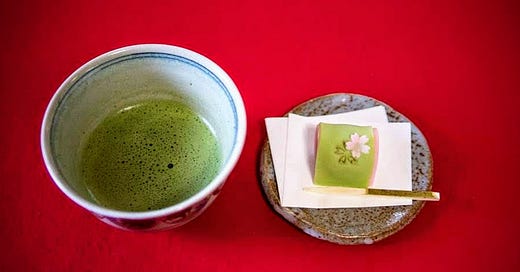The Deep Meaning Behind Tea Ceremony's Most Famous Concept
Ichigo Ichie - One moment, one meeting. One chance in a lifetime.
Sado, Japanese tea ceremony, is famous for 一期一会 Ichigo Ichie; One moment, one meeting, AKA one chance in a lifetime. As with many things, though, it took me a long time to realise what this was actually about.
Or, at the very least, my understanding has evolved over time.
As I un…
Keep reading with a 7-day free trial
Subscribe to Kiwi Yamabushi to keep reading this post and get 7 days of free access to the full post archives.




